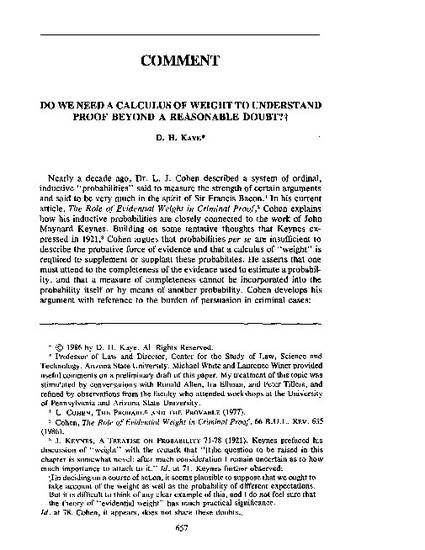
Article
Do We Need a Calculus of Weight to Understand Proof Beyond a Reasonable Doubt?
Boston University Law Review
Document Type
Article
Publication Date
1-1-1986
Disciplines
- Criminal Law and
- Evidence
Abstract
The commentary on a paper by L.J. Cohen, prepared for a symposium on probability and inference in the law of evidence, shows that the legal requirement of proof beyond a reasonable doubt can be understood simply as demanding a sufficiently high probability that the prosecution's narrative or story of the facts, which captures all the elements of the offense, is true. No separate measure of the "weight" of the totality of the evidence is required to understand the burden of persuasion. Any incompleteness in the evidence can be accounted for by a conditional probability that includes the presence of any gaps between the evidence that a juror reasonably would expect to hear and the evidence that is presented.
Citation Information
David H. Kaye. "Do We Need a Calculus of Weight to Understand Proof Beyond a Reasonable Doubt?" Boston University Law Review Vol. 66 (1986) p. 657 Available at: http://works.bepress.com/david-kaye/20/

This article was originally published at 66 B.U. L. Rev. 657.